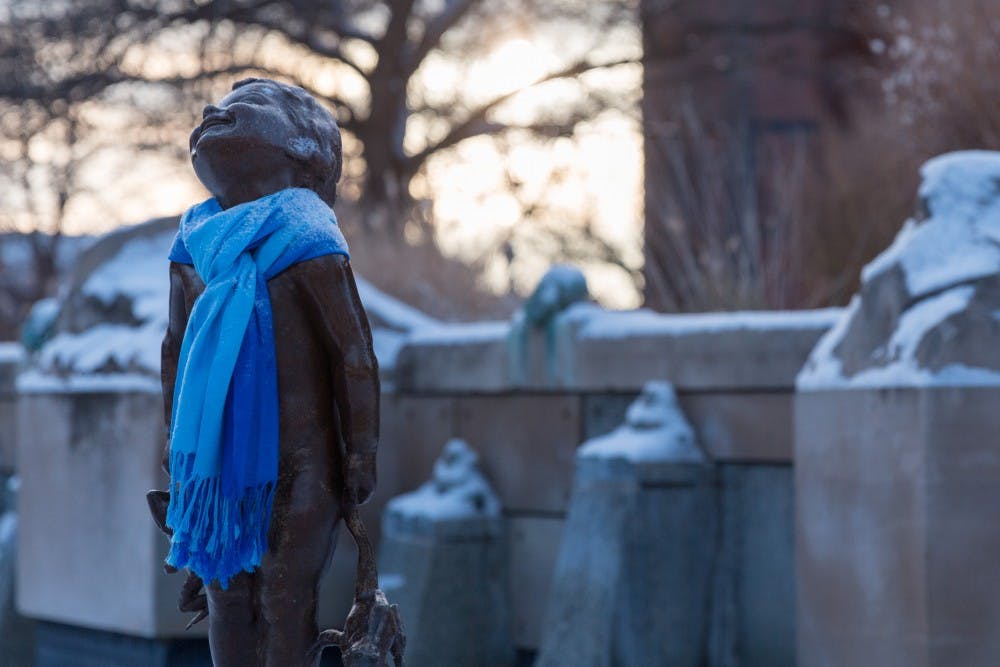Tips to protect against frostbite:
- Limit exposure to cold, wet, or windy weather
- Wear several layers and none constrictive clothing
- Cover ears, hand, and toes well to prevent heat loss
- Do not drink alcohol
- Consume balanced meals and stay hydrated
- Keep moving so blood keeps flowing
With extremely cold temperatures forecasted, the cold and flu are not the only conditions returning students should be concerned about.
The Richard M. Fairbanks Burn Center at Eskenazi Health is encouraging Hoosiers to take extra precautions this winter as dropping temperatures could result in frostbite.
Frostbite is a dangerous condition that can occur to skin caused by the cold. This can happen very quickly and cause serious damage to the skin, tendons, muscles, nerves and bones.
Symptoms of frostbite are simple to spot. Frostbite is associate with a tingling sensation on the affected area. The skin will be hard, pale and cold and there sometimes will be little to no feeling in the area. More severe cases cause blisters and black or dead tissue.
Layers are the key component against preventing frostbite.
WATCH: How to prevent frostbite. Story continues after this video.
According to a press release issued by the Richard M. Fairbanks Burn Center, people can shield skin by adding extra cover to more commonly affected areas, such as the nose, fingers, toes and ears, and dressing in warm layers with scarves, hats, gloves and boots.
Kendra Zenisek, PFW Program Coordinator and instructor at Ball State, advised students to make sure they are protected from the elements when they are outside.
|
Tips to protect against frostbite:
|
"Frostnip is more common in the United States than frostbite, but is however just the precursor to the actual illness," Zenisek said. "Frostnip progresses to frostbite and is to be taken just as seriously."
Some students like Sarah Pruitt, a junior biochemistry major, are taking precautions to ensure their safety.
“Don’t think you can outsmart the cold because it will win every time," Pruitt said. "Wear layers outside, hats, gloves, coats and please don’t be that person who wears shorts. Just be smart about it.”
There are sources available to provide winter clothing for those in need. Cardinal Closet, sponsored by the Ball State Student Action Team, has coats in a limited supply.





